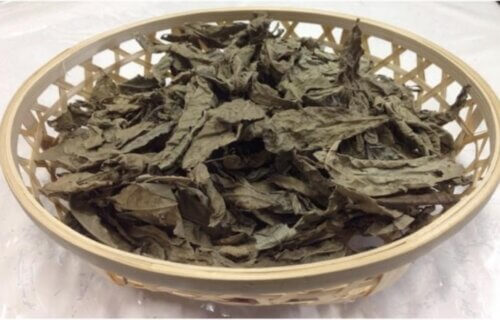OSAKA, Japan — A tropical plant native to China may hold the key to combating the global obesity epidemic, according to a new study. Scientists in Japan are revealing “remarkable” results, showing that extracts from the species “significantly suppress” increases in both body weight and fat tissue. They believe that their findings highlight the potential of Mallotus furetianus, also known as MFE, as a novel food ingredient possessing anti-obesity properties.
Mallotus furetianus is native to Hainan Island in China.
A multinational research team has previously studied the effects of using MFE extract for the prevention of fatty liver disease, but the anti-obesity effects and mechanisms of MFE have been unclear until now.
Obesity is a prominent risk factor for several lifestyle-related diseases, including diabetes and high blood pressure. According to the U.S. Centers for Disease Control and Prevention (CDC), more than four in 10 adults are clinically obese, with the medical costs linked to obesity totaling over $173 billion as of 2019.

To investigate the anti-obesity effects of MFE extract, the research team conducted a study using obesity model mice. The findings, published in the journal Food Science and Nutrition, revealed that treatment with MFE significantly suppressed the increase in body weight and adipose tissue weight. The study also identified structural changes in the liver and adipose tissue of the mice.
Associate Professor Akiko Kojima of the Graduate School of Human Life and Ecology at Osaka Metropolitan University has indicated that further examination into the mechanism revealed the inhibition of fat synthesis by suppressing the expression of several transcription factors involved in “adipocyte differentiation.”
“Our research group is searching for food ingredients with antiobesity effects, based on the idea that if we can find and incorporate them into our daily diets, we can contribute to people’s health and longevity,” says Prof. Kojima, the study’s lead author, in a university release. “These results not only suggest a link between Mallotus furetianus extract and antiobesity effects but also indicate its potential as a new food ingredient with antiobesity properties.”
South West News Service writer Stephen Beech contributed to this report.
You might also be interested in:
- This natural sugar in fruit is also driving the global obesity crisis
- Wegovy: How this high-dose semaglutide pill could help reverse obesity
- Popular obesity drug can also help destroy cancer cells, scientists discover

